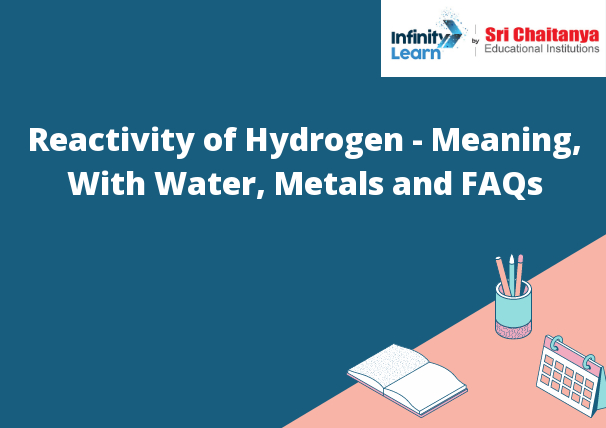Table of Contents
What is the Reactivity of Hydrogen?
The reactivity of hydrogen is determined by how easily it can lose an electron to form a cation. The higher the reactivity of hydrogen, the easier it is for it to lose an electron and form a cation.
| S.NO | CONTENT |
| 1 | INTRODUCTION |
| 2 | HYDROGEN REACTION WITH METALS |
| 3 | REACTION OF POTASSIUM METAL WITH WATER |
| 4 | REACTION OF SODIUM METAL WITH WATER |
| 5 | REACTIVITY OF HYDROGEN HALIDES |
| 6 | REACTIVITY WITH HYDROGEN ATOMS |

Hydrogen Reaction With Metals
When hydrogen gas comes into contact with a metal, a chemical reaction occurs. The hydrogen gas is converted into hydrogen ions (H+) and metal ions. The hydrogen ions then react with the metal ions to form a metal hydride.
The Reaction of Potassium Metal With Water
When potassium metal is placed in water, it reacts with the water to produce potassium hydroxide and hydrogen gas. The reaction is as follows:
2K (s) + 2H2O (l) → 2KOH (aq) + H2 (g)
Reaction of Sodium Metal With Water
When a piece of sodium metal is added to water, it dissolves to form a solution of sodium hydroxide. The sodium metal reacts with the water to produce hydrogen gas and sodium hydroxide.
Reactivity of Hydrogen Halides with Alcohols
The reactivity of hydrogen halides with alcohols is a result of the polarity of the alcohol molecule. Alcohols are polar molecules, meaning that the electron-rich oxygen atom is attracted to the electron-poor hydrogen atoms on the halide molecule. This attraction creates a strong dipole moment, which increases the reactivity of the alcohol molecule.
When a hydrogen halide molecule interacts with an alcohol molecule, the hydrogen atom on the halide molecule attacks the alcohol’s oxygen atom. This produces an alcohol molecule with a halide ion attached to it. The resulting product is called a halide ester.
Reactivity of Hydrogen Atoms Attached to Carbon
In general, hydrogen atoms attached to carbon are unreactive.
Reaction of Alkali Metals With Hydrogen
When alkali metals are exposed to hydrogen gas, they react to produce hydrogen gas and a metal salt. The reaction is as follows:
M + H2 → MH2
Alkali metals react very quickly with hydrogen gas and can generate a lot of heat. For this reason, it is important to handle alkali metals with care.









